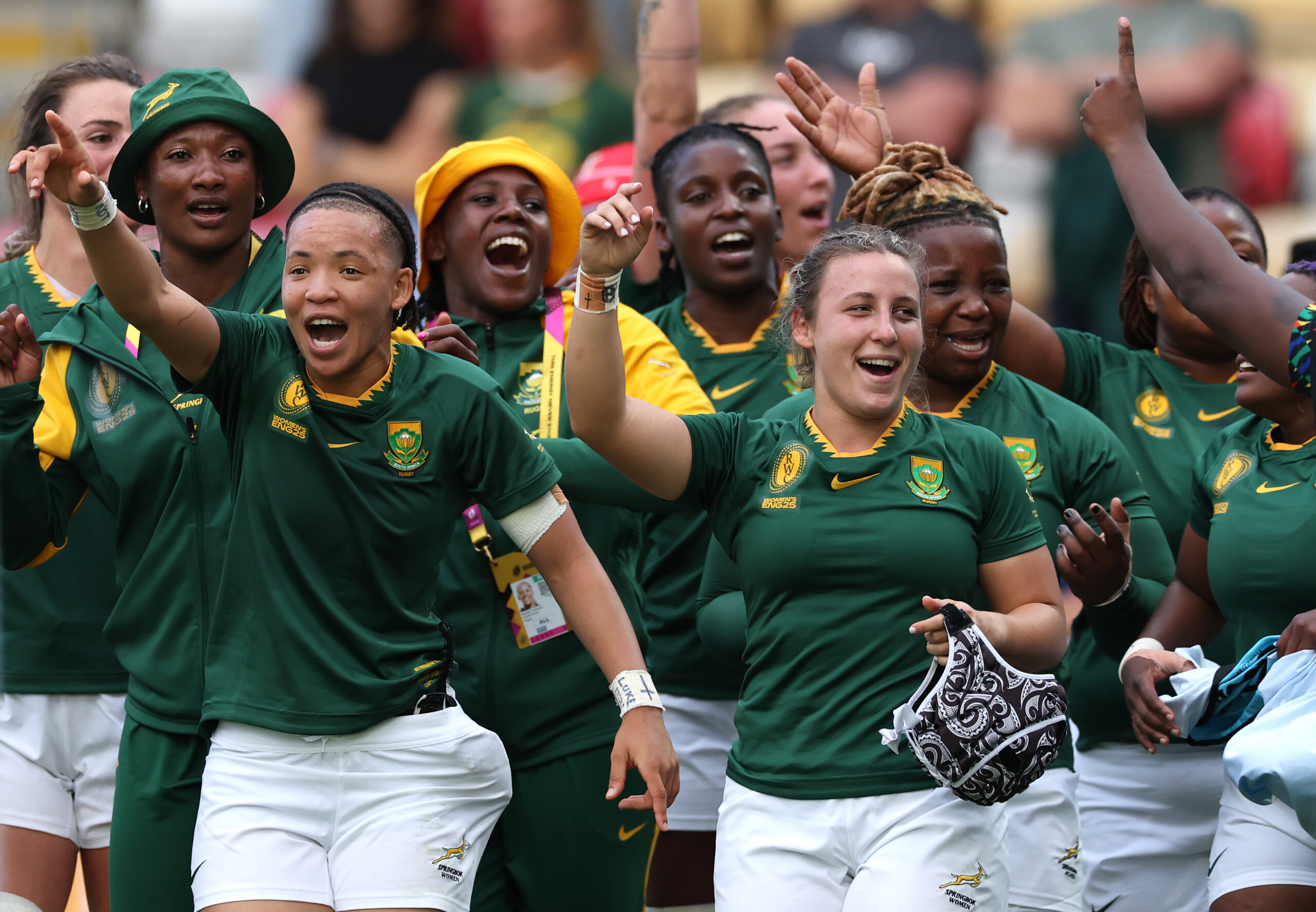When the final whistle went in York to confirm South Africa’s victory over Italy on Sunday, it sparked mass singing and dancing across the field. The Springbok Women have booked a place in a Women’s Rugby World Cup quarter-final for the first time in history, so the cause for celebration was there – but it’s not just in victory that these women sing.
Gwijo is an ancient form of South African cultural expression still seen today. Originally a ritual where Xhosa warriors would sing together to gather strength and calm nerves before a battle, it follows the men’s and women’s national teams across the globe and has been a regular feature at England 2025.
Former player and current assistant coach Laurian Johannes-Haupt knows exactly what it’s like to experience Gwijo, and sees its benefits first-hand.
“They chant, they dance, they sing, they’re just happy people,” she said of the players.
“Happy people are confident people and confidence on the field is massive. It’s really special because when I was a player that’s what we did.
“We sang to generate energy from each other, and going onto the field we’d carry that with us. Whether that’s to a training session or to a match, we do that to feel united and ready to go to war.”
Gwijo singing is a message unison and hope. Nombuyekezo Mdliki is one of the leaders of the singing within the squad and has around 20 different Gwijo songs in her repertoire.
“It helps to deal with nerves, not to focus on the game that’s coming,” she said. “It doesn’t allow you to think about all the surroundings, all the things that are going to stress you.
“Gwijo is something to distract your mind. It uplifts your confidence.”
Songs can range from loud and motivating, to quieter and more concentrated melodies. Mdliki says her choices depend on the environment and mood.
“If we are down, we will sing a song that will uplift our souls, and if we are celebrating, we sing one that’s for celebrating,” she said.
“If there’s an event, we’ll sing one that goes with that event because they are different categories.
“We don’t really sing loud ones when we are in the changing rooms, we sing ones with prayers because we are praying for the win. Praying to do well. So it’s not really loud, it’s polite.”
Ultimately, the ritual relaxes players and allows them to play their best rugby. But more than that, it fosters a family environment within the squads and brings players together unlike any other team.
“It’s about the culture. It’s about uniting ourselves,” she said.
